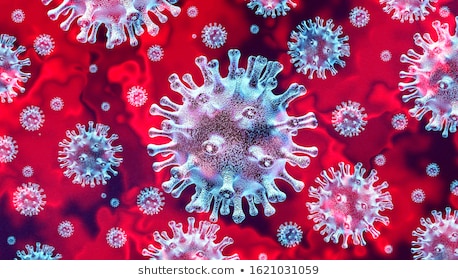Coronavirus
CORONAVIRUS
A virus that doesn't need any cure
We can stop the spread, we can save our world.
Coronavirus
Things we should know

Defination
Coronavirus disease (COVID-19) is an infectious disease caused by a newly discovered coronavirus.The COVID-19 virus spreads primarily through droplets of saliva or discharge from the nose when an infected person coughs or sneezes.......READ-MORE

Prevention
Wash your hands regularly with soap and water, or clean them with alcohol-based hand rub..Maintain at least 1 metre distance between you and people coughing or sneezing..Avoid touching your face..Cover your mouth and nose when coughing or sneezing..Stay home if you feel unwell........READ-MORE

Common symptoms include:
- fever
- tiredness
- dry cough.
- shortness of breath
- aches and pains
- sore throat
- READ MORE

What WHO said:
COVID-19 is a respiratory disease and most infected people will develop mild to moderate symptoms and recover without requiring special treatment. People who have underlying medical conditions and those over 60 years old have a higher risk of developing severe disease and death.Read More
Some Questions:
People with mild symptoms who are otherwise healthy should self-isolate and contact their medical provider or a COVID-19 information line for advice on testing and referral. People with fever, cough or difficulty breathing should call their doctor and seek medical attention.
At present, based on current evidence, WHO recommends the use of these new point-of-care immunodiagnostic tests only in research settings. They should not be used in any other setting, including for clinical decision-making, until evidence supporting use for specific indications is available.....Read More
WHO continues to evaluate available immunodiagnostics tests for COVID-19 and will update this scientific brief when necessary. Rapid diagnostic tests based on antigen detection One type of rapid diagnostic test (RDT) detects the presence of viral proteins (antigens) expressed by the COVID-19 virus in a sample from the respiratory tract of a person. If the target antigen is present in sufficient concentrations in the sample, it will bind to specific antibodies fixed to a paper strip enclosed in a plastic casing and generate a visually detectable signal, typically within 30 minutes. The antigen(s) detected are expressed only when the virus is actively replicating; therefore, such tests are best used to identify acute or early infection. How well the tests work depends on several factors, including the time from onset of illness, the concentration of virus in the specimen, the quality of the specimen collected from a person and how it is processed, and the precise formulation of the reagents in the test kits. Based on experience with antigen-based RDTs for other respiratory diseases such as influenza, in which affected patients have comparable concentrations of influenza virus in respiratory samples as seen in COVID-19, the sensitivity of these tests might be expected to vary from 34% to 80%....HERE

Comments
Post a Comment